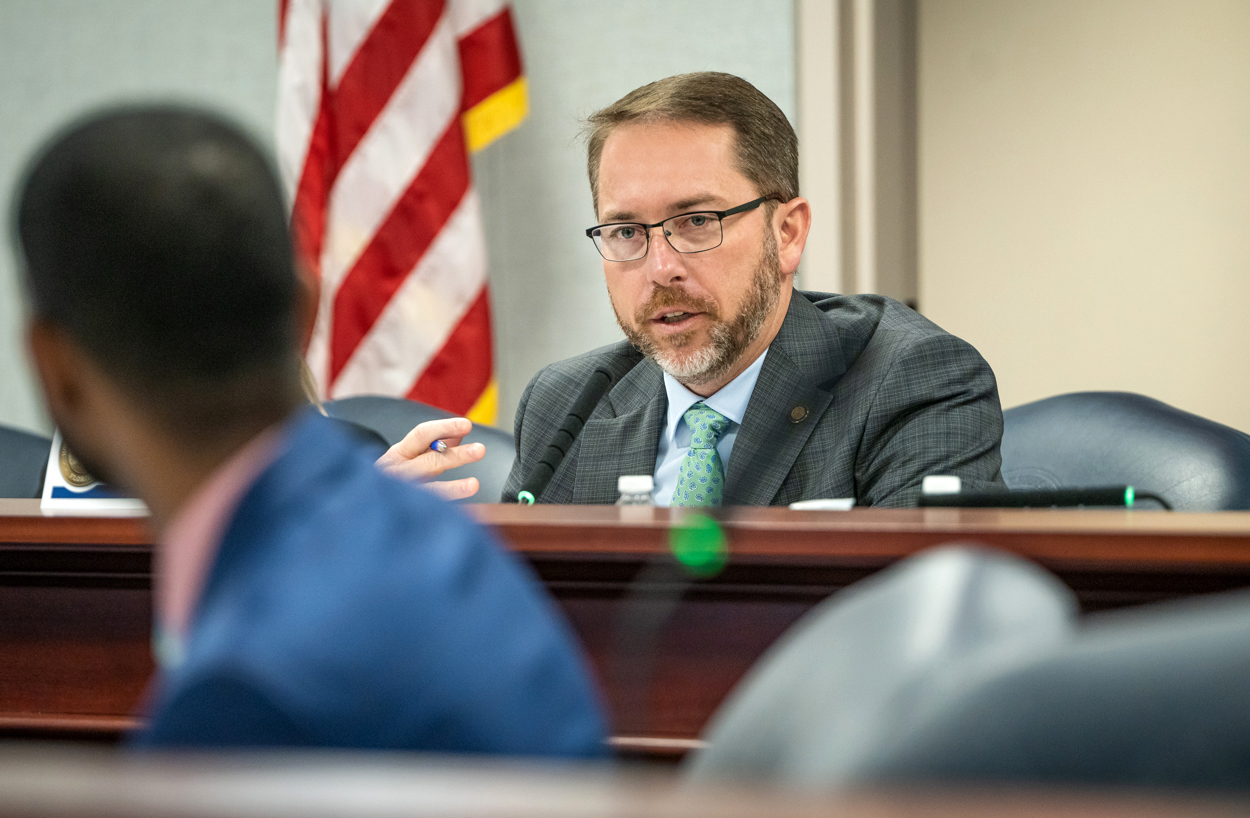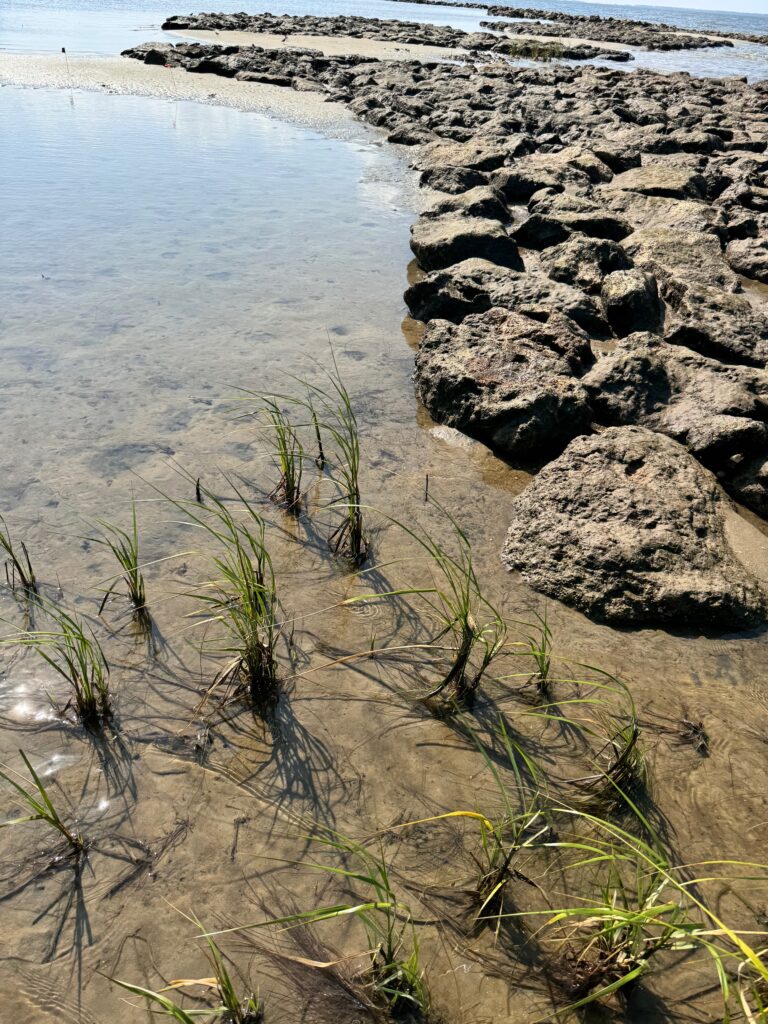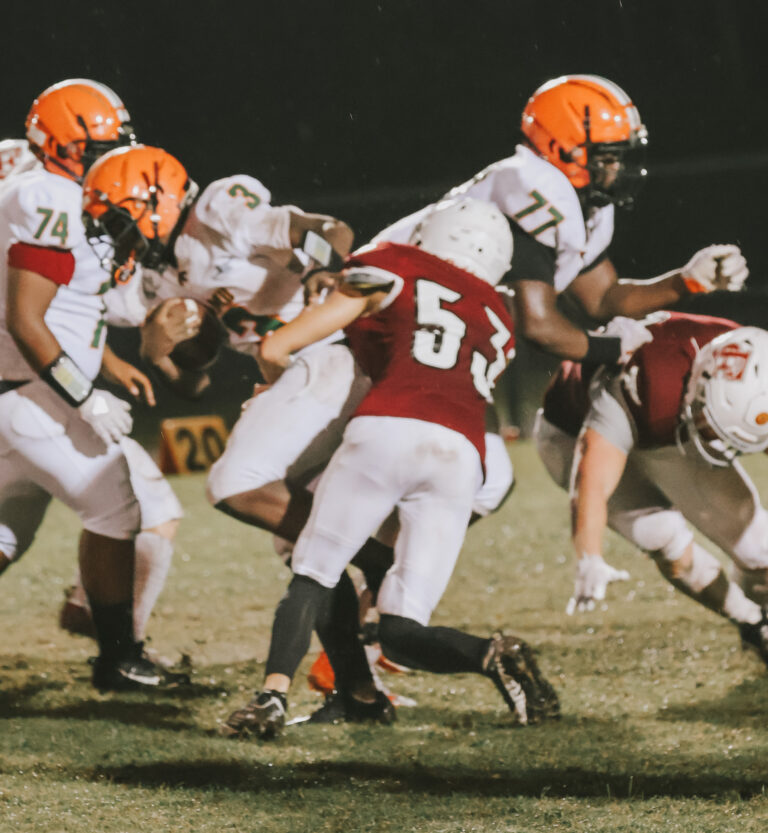Shoaf talks bear bill and border visits
It’s been a busy year for State Rep. Jason Shoaf, in terms of both bears and borders.
In a wide-ranging interview last week, the Port St. Joe Republican, who has completed two terms in the Florida House of Representatives, and is likely to be elected to a third one in the fall, touched on his steering passage of a bill related to the taking of bears, a bill that he tried unsuccessfully in years past to get approved but lacked a sponsor in the Senate.
The bear legislation, which also had the strong support of State Sen. Corey Simon (R-Tallahassee), passed 24-12 in the Senate and 83-28 in the House, and was signed June 21 by Gov. Ron DeSantis.
Pleased with the passage of the bill, Shoaf’s comments also indicated that some of the tactics used by forceful opponents of the bill had rankled him.
“They told everyone the apocalypse is coming and in July there would be a mass extinction event,” he said. “Which has not happened.
“I have no doubt that the bear population will be just fine,” Shoaf said. “This is in no way a permission slip to hunt bears. FWC has assured me that the first time that somebody decides they want to kill a bear and use this law as an excuse (it will file charges).”
The two-term state rep said he felt some opponents had distorted the issue by using “scaremongering tactics” to gin up nay votes.
“I feel very strongly about it,” he said. “Some of the things that they said and did were horrific. That’s not the proper way to support or defend your position. The sky is falling takes away your credibility for future arguments. It’s a playbook often used in politics, with extreme threatening fearmongering that they know full well is not accurate.”
Shoaf said the bill was crafted carefully, making sure that it applied only on private property, which even before the bill’s passage had been the case.
“We worked with the opposition to tailor the words just right,” he said.
Shoaf said the initial language had been to allow killing of bears if an individual “feels threatened” but that was later changed.
“They made a great point, the word ‘feel’ is very arbitrary,” he said. “I agreed with them and we met them in the middle. We had a lot of Democrats voting for the bill; there were two Democrats who stood up in the debate and voted for it.”
The new law, which went into effect July 1, makes it illegal to attract a bear, does not allow any taking of the meat and hide, and requires reporting it to the Florida Fish and Wildlife Conservation Commission within 24 hours. “You also cannot put yourself in a situation that creates the issue,” Shoaf said.
The precise wording reads that a taking of a bear is allowed only if “the person reasonably believed that his or her action was necessary to avoid an imminent threat of death or serious bodily injury to himself or herself or to another, an imminent threat of death or serious bodily injury to a pet, or substantial damage to a dwelling.”
Shoaf credited Franklin County Sheriff A.J. Smith with getting the attention of FWC officials to do more to tackle the issue. “When he put on boxing gloves with FWC, it created an opportunity where the Senate became supportive,” Shoaf said. “The House was already supportive.”
Smith was one of several sheriffs in the region to testify before a committee on the nature of the threats that residents face regarding bears.
“People ask ‘Why are we taking time to do legislation about bears?’” Shoaf said. “They obviously don’t live where there’s a huge bear mauling a child.”
The state rep did find merit in one aspect of opponents’ arguments, that more needed to be done to help people find ways to reduce bears’ access to their property.
“The groups opposing the bill made an excellent point of the problem of garbage left out, which is an attractant for these bears,” Shoaf said.
Bear-proof trash containers can be expensive, so Shoaf and Simon worked to secure $650,000 for Franklin County to buy and distribute them in high-risk areas.
“My concern is that they have the resources they need to bear proof these garbage cans,” Shoaf said. “The opposition and I see eye-to-eye on that.”
Where they differ, he went on to say, is when they advise residents to remove bird feeders, or cut down fruit trees, or not to grill at night. “Can you imagine North Florida without fruit trees or bird feeders?” he said.
Visits two southern borders
Following the busy session, in which Shoaf spoke in the interview about several other notable successes, he had an opportunity to visit two borders, one along the U.S. Mexico boundary, and the other where Israel borders the Gaza Strip.
On his visit to the Texas border, the trip brought together legislators from several states, and was paid for by the American Legislative Exchange Council (ALEC), a nonprofit organization of conservative state legislators and private sector representatives who draft and share model legislation for distribution among state governments in the United States.
“They hosted us and put us on state airplanes, and we went up and down the Rio Grande River,” Shoaf said, noting that he had voted in favor of spending millions of dollars to have Florida law enforcement officers deputized to work the border.
He said he visited those Florida officers, both the Florida Highway Patrol officers working the roads, and the FWC officers working the river along with the Florida State Guard.
“I fully supported the budget to pay for that and being able to go down there to see first hand these families crossing the river, the razor wire was six or seven rows thick,” he said. “There were mountains of clothes, and huge alligators like a scene from horror movies. They (immigrants) would approach with seven or eight layers of clothes on, parents with little kids going through the river.”
Shoaf said he learned that border crossings have diminished. “Eagle Pass was the worst; now they’re the best, with 15,000 to 20,000 crossings a day down to 10,” he said. “Those states’ efforts and the Florida effort is really working.
“It is a Florida problem all day long,” he said. “They’re busing them into Florida and dumping them in Florida, to become a burden on state resources. It’s a humanitarian crisis. It really changed me, it moved me.”
Shoaf more recently took part in a trip to Israel as a guest of the Israeli government, the only North Florida legislator to be invited on the trip led by State Sen. Randy Fine, a Jewish man who represents Brevard County and who has been a strong advocate for addressing the problem of anti-Semitism in the state.
Shoaf said the group traveled with security forces to the border with Gaza, and were in the area the day that soldier executed a raid that freed several hostages.
“We met a survivor,” he said. “Many of their family were slaughtered, and they walked us through the atrocities and gruesomeness of the attacks. We ended up in another living room where a mother was cut to pieces by barbarians with knives. And we moved to the music festival field where another survivor was there to recount where she ran and where she hid under dead friends’ bodies.”
The trip also took the legislators to the Golan Heights where they saw the soccer field that would later become the scene where several Druze children would be killed in a Hezbollah rocket attack.
“That soccer field was right where they were,” Shoaf said. “We had to leave early there were so many rocket attacks.”





Meet the Editor
David Adlerstein, The Apalachicola Times’ digital editor, started with the news outlet in January 2002 as a reporter.
Prior to then, David Adlerstein began as a newspaperman with a small Boston weekly, after graduating magna cum laude from Brandeis University in Waltham, Massachusetts. He later edited the weekly Bellville Times, and as business reporter for the daily Marion Star, both not far from his hometown of Columbus, Ohio.
In 1995, he moved to South Florida, and worked as a business reporter and editor of Medical Business newspaper. In Jan. 2002, he began with the Apalachicola Times, first as reporter and later as editor, and in Oct. 2020, also began editing the Port St. Joe Star.